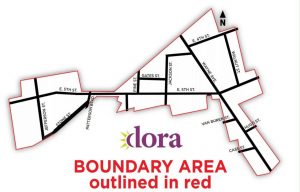LOVELAND, Ohio — Anne and Frank Ramsey met at work in 1996 and started dating one year later.
“We pretty much knew right away,” Anne said.
The two were married in the Cayman Islands in 1998 and have had a very memorable life — filled with two children, twin grandsons, and lots of beautiful memories through 22 years of marriage.
But in 2015, Frank started to show symptoms that he may have Alzheimer’s — a chronic neurodegenerative disease that attacks the brain.
“Driving skills, that showed up,” Anne said. “Getting lost while driving. Also his performance on his job suffered. It was noticeable at work, it was noticeable in his performance. And that’s where it really got concerning.”
Anne said Frank was diagnosed with early-onset Alzheimer’s disease in 2018. That’s when their life started to change.
“Once we got the diagnosis, it was difficult,” she said. “Because then, what do you do? The diagnosis tells you the prognosis is not good.”
She said they took a deep breath before determining the next steps, which led to her linking up with the Alzheimer’s Association of Greater Cincinnati, which has been a tremendous help throughout the process.
“I wouldn’t be where I am today, Frank wouldn’t be where he is today without the Alzheimer’s Association,” she said.
But Anne said it’s getting harder and harder as time goes along, and the pandemic is certainly not helping.
“He doesn’t know who I am,” she said. “He knows I’m his person, and he sometimes gets confused on who he is.”
Anne said Frank has been relatively good about understanding the guidelines in place on how to stay safe during the pandemic, but the lack of social interaction presents different challenges.
“When the pandemic hit, it has been really difficult,” Anne said. “At least on the weekends, a couple times during the week, we’re getting together with friends, pre-pandemic. We’re going to the museums, we’re hiking.”
But Anne has Type 2 diabetes and is considered high-risk for COVID-19. So, they both have been playing it safe.
“And although we have wonderful neighbors and my family is here in Ohio, it would be a hardship for them,” she said. “Because daily, I am the one maintaining the schedule, and the schedule is very important.”
She said the lack of social interaction is having negative effects on Frank.
“He’s feeling very frustrated,” Anne said. “There’s only so much housework you can do. He’s frustrated, I’m frustrated too. And then the disease marches on, right? There’s been two major declines during the five months we’ve been home. Trying to manage that and his frustration is very difficult.”
Managing the disease is the biggest challenge, because you can’t predict what is going to happen on a daily basis. So to help keep Frank’s memories alive, they relive happy memories from throughout their lives.
And that has allowed Frank to maintain his motivation to continue to read to his twin grandsons and continue to build more happy memories while they still can.
And through it all, Anne is guiding Frank through living with Alzheimer’s disease — by displaying unconditional love in every sense of the term.
“I always try to put myself in his shoes because he is a much better person than I am,” she said. “I always try to think about what he would do for me. But it is truly unconditional love.”
There is no cure for Alzheimer’s Disease, but research is being done to find a one. To find out more on how you can help visit the Alzheimer’s Association’s website.




